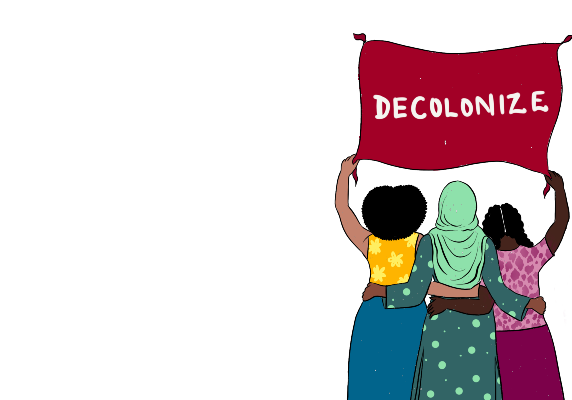How INGOs can remove barriers in their recruitment process to cultivate a more diverse workforce
My name is Mustafa and I joined Bond as Humanitarian Advisor in November 2022.
I have a Master’s in Violence, Conflict, and Development from SOAS through the Chevening Award and a Bachelor’s in English Literature from IBB University, and have worked for several INGOs, UN organisations, and government bodies in several MENA countries, as well as South Sudan, on a range of issues, from delivering education in emergencies to livelihoods.
From reading all of this, many would expect that it would be easy for someone like me, with my lived experience and extensive in-country experience, to find a job with an INGO in the UK. You couldn’t be further from the truth.
The humanitarian sector, particularly here in the UK, is incredibly competitive, and many of the people I was competing against had two things I didn’t: a British passport and English as their native language.
Privilege comes with a British passport
It is much easier to find a job in other countries than it is here in the UK. After applying for position after position, sometimes in the same organisations, I kept getting rejected.
My expertise lies in my experience in humanitarian settings and especially in my home country, Yemen.
But as someone who, like many people from humanitarian contexts, has been forced to flee my home country as a refugee, I do not have the freedom to travel back, nor the privilege to come and go to and from the UK as many times as I please. Yet I am fluent in two languages, have a wide range of networks and contacts, and have the experience to get the job done.
Advertise on Bond’s jobs board!
Bond’s unique jobs board is dedicated to international development and humanitarian recruitment.
As a diverse network of over 400 international development organisations, we are uniquely placed to attract the best talent and connect you to quality candidates who have the expertise and experience you’re looking for.
Find out more about Bond's jobs boardThe question I would ask humanitarian organisations is, having lived through Covid-19 and all the travel restrictions it brought with it, and at a time when we are trying to travel less to keep our carbon footprint down and bring more people with lived experience into organisations, why not be more flexible? If there is a stakeholder meeting that needs to take place, why not host it in a “hub country” that everyone can get a visa to go to? Like Kenya or Amman? And does it require someone from the UK to go to a country to collect case studies? Why not hire a local journalist or communications professional who can carry out the work in safety?
If as an INGO, you do employ someone who is only able to travel outside the UK for a set amount of time, it’s also important to remember that they may need or want to travel for other reasons that are not work-related, and they may only be allowed to leave the UK for set periods, depending on their immigration status or visa.
The reality is, many INGOs see employing someone like me, despite my experience and expertise, as less convenient than employing someone with a British passport.
The INGO preference for “native speakers”
English is my second language, but I am someone who has worked and studied in English. You would be amazed at how many jobs specifically ask for “native” British speakers. Unless organisations are open to professionals who have English as a second language, either explicitly or implicitly, the sector will not be able to bring diversity or lived experience into it.
I sadly suspect that there is a tendency to focus more on the few things that someone like me doesn’t have, than the networks, understanding of country contexts, culture, language and understanding of logistics that we have. Without the will, there is simply no way.
Thankfully I am working with an organisation where the nature of the work doesn’t require me to travel, and I get to continue to work on the issues I care about and have the experience to help with. And as an organisation that is trying hard to practice what it preaches, I appreciate the fact that just because I didn’t have one of the essential requirements (experience working with the FCDO), it didn’t mean everything else I brought to the table was overlooked.
I would encourage other INGOs to also take a similar approach. Put a value not just on ease and familiarity, go for someone with lived experience. Nothing can replace a person’s lived experience and the determination they may have to make their part of the world a safer place.
We would all benefit if you did.
Category
News & Views



